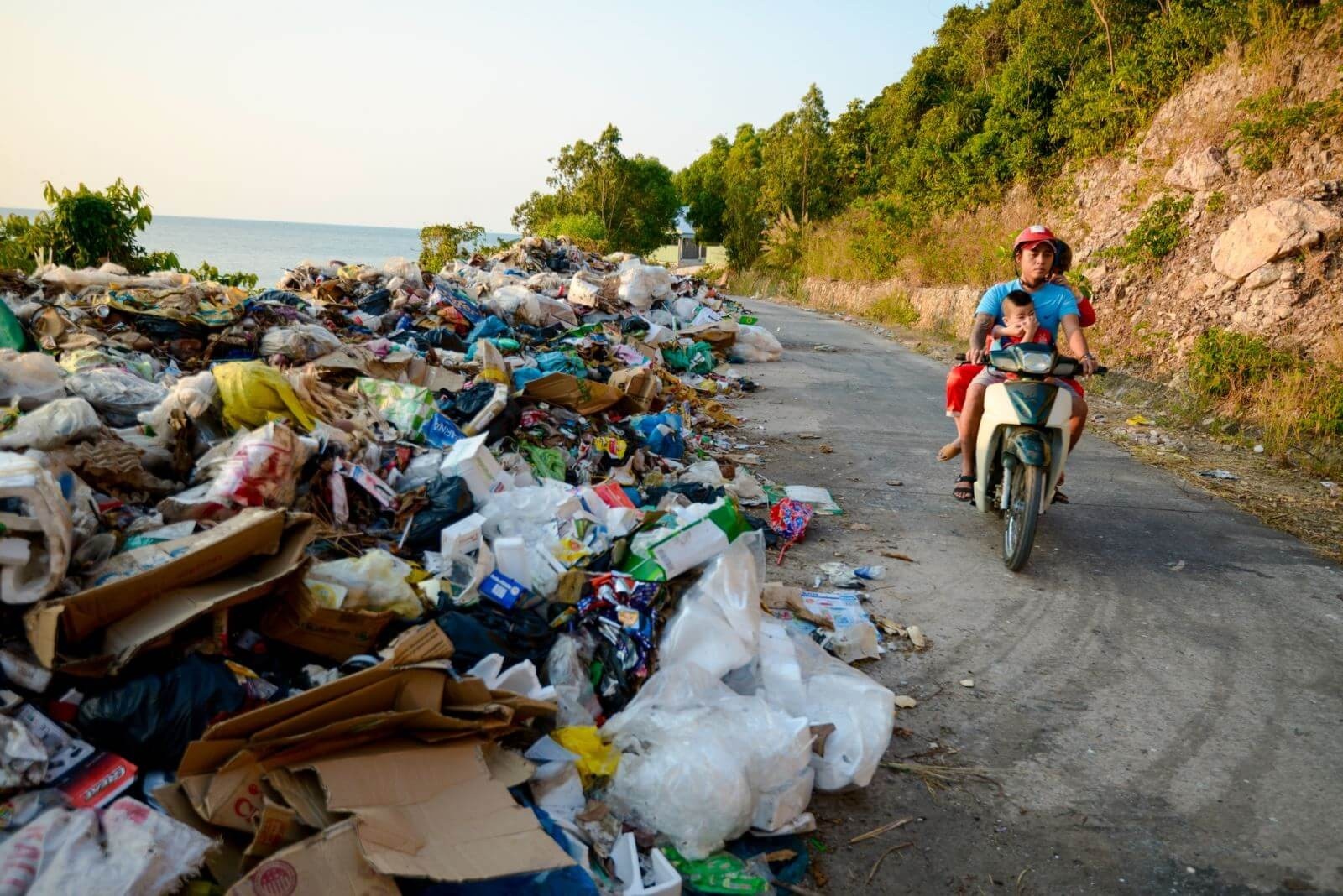Coping with the impact of single-use plastics on health
 |
| Plastic bags and other disposable plastic products are difficult to decompose, causing great harm to human health and the environment |
This is one of the side activities of the media exhibition River Tells Plastic Stories organised by ISPONRE and the Embassy of the Netherlands in collaboration with the World Wild Fund for Nature in Vietnam. The workshop is held at the Goethe Institute from February 15 to March 15.
Nguyen Trung Thang, deputy director of ISPONRE said, “The Plastics and Health Action Partnership was established to connect existing plastic waste-related networks in Vietnam in a common playground with the participation of 20 organisations and initiatives related to plastics and health.”
The conference aims to provide information on the link between plastic and health, an opportunity to discuss research results to communicate behavioural change about the consumption of single-use plastic products.
Nguyen Duc Vinh, general secretary of PHA said, “Through this workshop, we hope that stakeholders will have a more overall view of the impact of plastic waste pollution on health and the surrounding environment."
Plastic bags and other disposable plastic products are difficult to decompose, causing great harm to human health and the environment as well as ecosystems on Earth.
According to researchers, it takes thousands of years for plastic bags to decompose in the natural environment. In Vietnam, about 30 billion plastic bags are used and discarded every year, of which only 17 per cent is recycled and reused, the rest is disposed of immediately after a single use. This causes heavy environmental pollution and is a condition for diseases to multiply and develop.
If handled improperly, such as incineration, plastic waste will turn into gas and produce toxins. Humans’ health will be affected through inhalation, and in the long run, also cause diseases.
Nguyen Thi Thu Trang, co-founder and deputy director of the Centre for Supporting Green Development, said that plastic waste in the process of decomposition will turn into microplastics.
Microplastics with a diameter of less than 20 micrometres are capable of entering internal organs. If smaller than 10 micrometres, they can even pass through cell membranes and enter the brain-blood barrier, which then affects the immune system and causes cancer.
What the stars mean:
★ Poor ★ ★ Promising ★★★ Good ★★★★ Very good ★★★★★ Exceptional
 Tag:
Tag:
Related Contents
Latest News
More News
- Vingroup consults on carbon credits for electric vehicle charging network (January 28, 2026 | 11:04)
- Bac Ai Pumped Storage Hydropower Plant to enter peak construction phase (January 27, 2026 | 08:00)
- ASEAN could scale up sustainable aviation fuel by 2050 (January 24, 2026 | 10:19)
- 64,000 hectares of sea allocated for offshore wind surveys (January 22, 2026 | 20:23)
- EVN secures financing for Quang Trach II LNG power plant (January 17, 2026 | 15:55)
- PC1 teams up with DENZAI on regional wind projects (January 16, 2026 | 21:18)
- Innovation and ESG practices drive green transition in the digital era (January 16, 2026 | 16:51)
- Bac Ai hydropower works stay on track despite holiday period (January 16, 2026 | 16:19)
- Fugro extends MoU with PTSC G&S to support offshore wind growth (January 14, 2026 | 15:59)
- Pacifico Energy starts commercial operations at Sunpro Wind Farm in Mekong Delta (January 12, 2026 | 14:01)






















 Mobile Version
Mobile Version